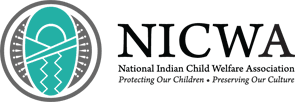With the election of President Donald Trump to serve in his second term, the National Indian Child Welfare Association released the following statement:

As the 2024 election results are nearly complete, we recognize there is much at stake for our communities. At times, the campaign rhetoric was divisive and raised important questions about how a transition in leadership might impact our communities. While leadership changes can often bring uncertainty and even anxiety, we have prepared for this and are already planning how we will organize, educate, and advocate for the needs and rights of Native children and families and the protection of tribal sovereignty.
NICWA has navigated national leadership changes going back to the 1980s, and we understand how to strategically and diligently advocate for the rights and protection of Native children and families in changing political environments. During some of the most challenging times, we have found ways to protect and even advance resources and rights for Native children and families. This included expanding our network of allies—both Native and non-Native—and finding new ways to communicate the importance of laws like the Indian Child Welfare Act, which are crucial to the well-being of our communities.
NICWA values seeking opportunities to work in a bipartisan manner and designing strategies that ensure support from both parties. Our strength is the relationships we have within our communities, leadership, and each other. We will continue our fight for the protection of Native children and families with you as our most valuable allies and partners.
More Stories Like This
Native News Weekly (August 25, 2024): D.C. BriefsNavajo Nation Mourns the Passing of Former Vice President Rex Lee Jim
Deb Haaland Earns Endorsement From Communications Workers of America Local 7076
University Soccer Standout Leads by Example
Two Native Americans Named to Democratic Congressional Campaign Committee's“Red to Blue” Program
Help us defend tribal sovereignty.
At Native News Online, our mission is rooted in telling the stories that strengthen sovereignty and uplift Indigenous voices — not just at year’s end, but every single day.
Because of your generosity last year, we were able to keep our reporters on the ground in tribal communities, at national gatherings and in the halls of Congress — covering the issues that matter most to Indian Country: sovereignty, culture, education, health and economic opportunity.
That support sustained us through a tough year in 2025. Now, as we look to the year ahead, we need your help right now to ensure warrior journalism remains strong — reporting that defends tribal sovereignty, amplifies Native truth, and holds power accountable.
 The stakes couldn't be higher. Your support keeps Native voices heard, Native stories told and Native sovereignty defended.
The stakes couldn't be higher. Your support keeps Native voices heard, Native stories told and Native sovereignty defended.
Stand with Warrior Journalism today.
Levi Rickert (Potawatomi), Editor & Publisher

